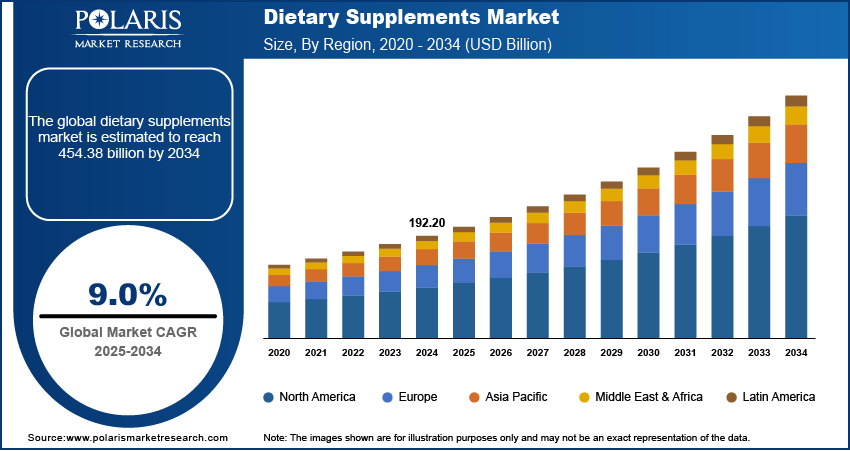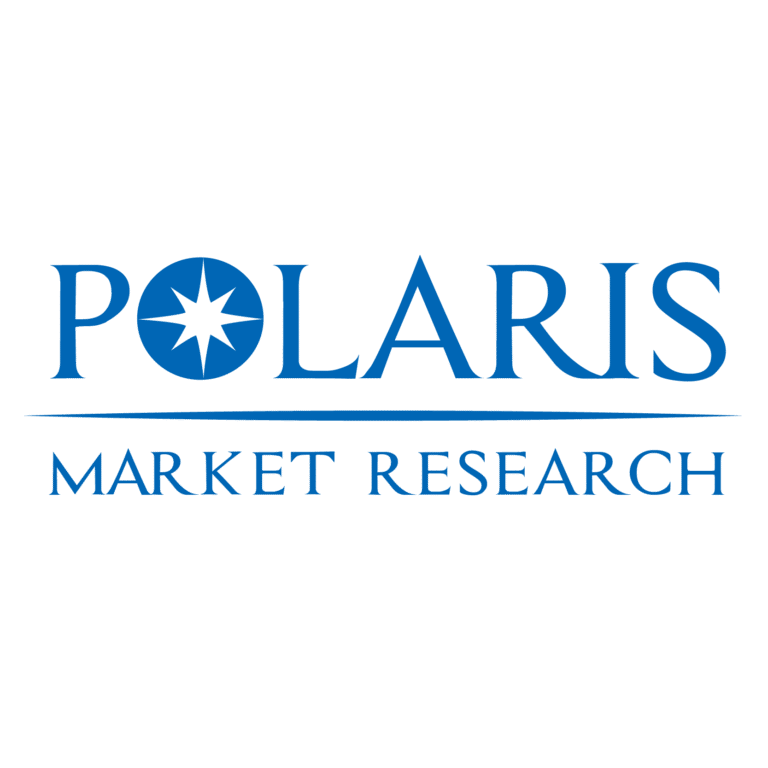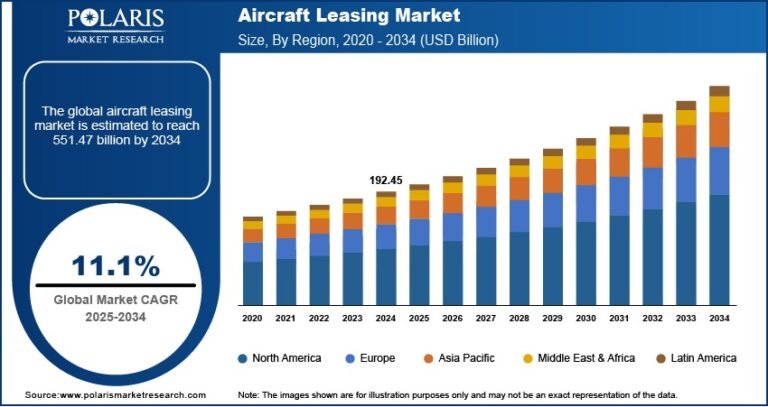Dietary Supplements Market Anticipated to Reach $454.38 Billion by 2034, Growing at a CAGR of 9.0%

Global Dietary Supplements Market size and share is currently valued at USD 192.20 billion in 2024 and is anticipated to generate an estimated revenue of USD 454.38 billion by 2034, according to the latest study by Polaris Market Research. Besides, the report notes that the market exhibits a robust 9.0% Compound Annual Growth Rate (CAGR) over the forecasted timeframe, 2025 – 2034.
Key Market Trends & Insights
- Rising Popularity of Immunity-Boosting Products
The post-pandemic focus on immune health has led to increased demand for supplements rich in vitamin C, zinc, elderberry, and probiotics. - Shift Toward Plant-Based and Clean-Label Supplements
Consumers are opting for natural, vegan, and allergen-free products, prompting companies to reformulate products using clean, transparent ingredients. - Personalized Nutrition Gaining Ground
Advancements in AI, DNA testing, and microbiome analysis are enabling personalized supplement plans tailored to individual health profiles. - Expansion of Online Sales Channels
Digital health platforms and e-commerce are reshaping consumer access, offering convenience, subscription models, and greater product variety. - Growing Sports and Fitness Nutrition Segment
Demand from athletes and fitness enthusiasts for protein powders, energy boosters, and recovery supplements continues to rise globally.
Market Size & Forecast
- Market size value in 2025 – USD 209.04 billion
- Revenue forecast in 2034 – USD 454.38 billion
- CAGR – 9.0% from 2025 – 2034
Market Overview
The dietary supplements market is expanding rapidly, driven by growing consumer awareness of health, wellness, and preventive healthcare. Dietary supplements include vitamins, minerals, amino acids, enzymes, and herbal products that support overall health or target specific health conditions. The market has seen a surge in demand across all age groups, fueled by lifestyle-related disorders, aging populations, and evolving dietary patterns. The COVID-19 pandemic further accelerated the market as consumers prioritized immunity and wellness.
Request a Free Sample Research PDF:
Key Market Growth Drivers
- Increased Health Consciousness Across Demographics
A global shift toward proactive health management is driving consistent demand for daily wellness and condition-specific supplements. - Aging Population and Preventive Healthcare Focus
Aging populations in regions like North America, Europe, and Japan are turning to supplements for bone health, cognition, and heart support. - Rising Incidence of Lifestyle Diseases
Conditions like obesity, diabetes, and cardiovascular disorders are encouraging individuals to use dietary supplements as part of preventive strategies. - Government Support and Regulatory Approvals
Supportive regulations and recognition of dietary supplements as a complementary part of healthcare systems are enabling broader market reach.
Market Challenges
- Regulatory Complexity and Labeling Standards
Varying global regulations and Dietary Supplements maket product registration, marketing, and compliance a major hurdle for international expansion. - Product Quality and Safety Concerns
Incidents of adulteration, contamination, or mislabeling have led to consumer skepticism, underscoring the need for stringent quality control. - Market Saturation and Intense Competition
The growing number of brands and product launches has resulted in fierce competition, making brand differentiation increasingly difficult. - Lack of Consumer Education
Many consumers still lack knowledge about appropriate usage, benefits, bone and joint health supplements and potential interactions of supplements with medications, limiting effective adoption.






